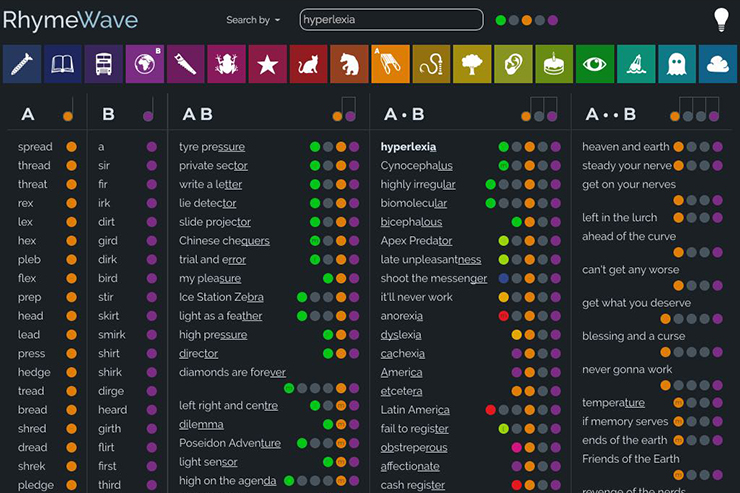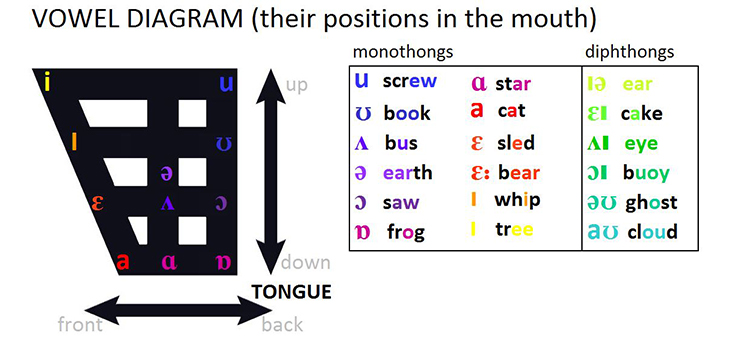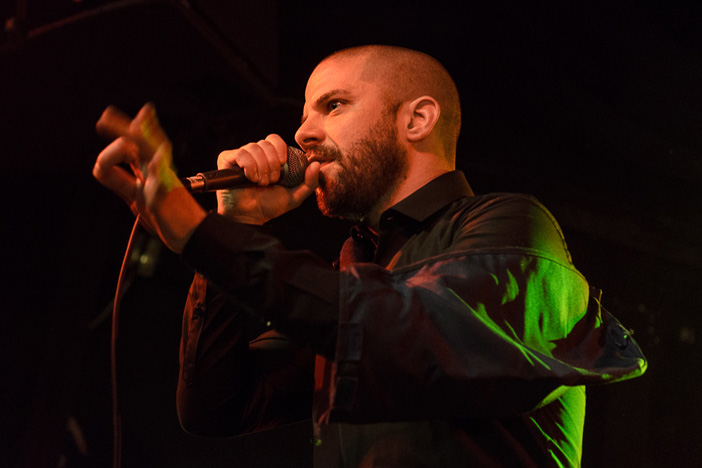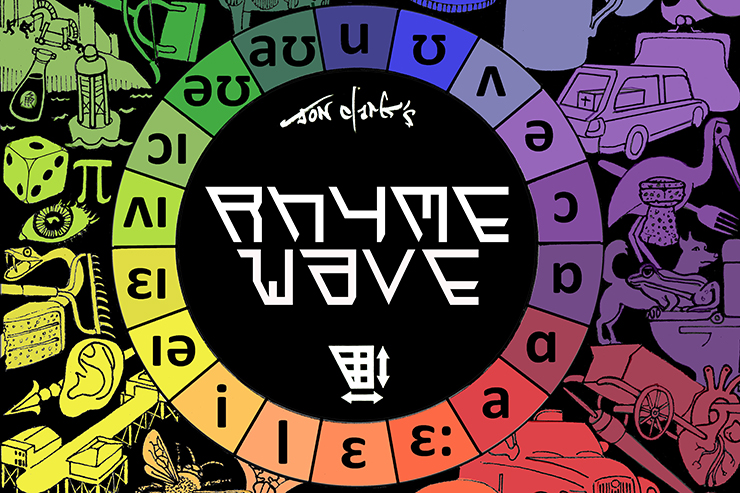Rappers are wired differently to most people, at least in terms of the verbal connections they’ve managed to burn into their brains through countless freestyle battles. If you ever caught Brighton hip hop group The Spoken Herd you’ll know how impressive it is to hear MCs weaving on-the-spot rhymes around random audience suggestions. Jon Clark, one of the Herd’s frontmen, has just launched a new website which is basically a distillation of a lifetime’s obsession with words.
RhymeWave is an online rhyming dictionary for rappers that was recently endorsed by London Posse’s Rodney P. It effectively started life when Jon began compiling words as a teenager. Later, a coder friend called Tom turned these reams of rhymes into a website, but he sadly passed away soon after, leaving the project in limbo. Now, 25 years after Jon first started scribbling in exercise books, RhymeWave has finally emerged as a snazzy site with a database of 50,000 words… and it’s not even finished. By definition, this is an endeavour that can never end. Intrigued, SOURCE spoke to Jon to find out more.

What is RhymeWave and who is it for?
It was first built for personal use. Rhyme, at its best, sounds beautiful and gives prose a musical repetition which makes it feel like it was written in the stars. At its worst, it sounds obvious or stops you getting to the point. That’s why I made RhymeWave. To give you enough choices to pick rhymes that are surprising and which reinforce your message. At the moment, in England, people are using it to write poetry, hip hop, grime and drill. But in Taiwan they’re taking advantage of the phonetic framework to learn how to pronounce English words.
How is it different to a standard rhyming dictionary?
It’s a word weapon which reads like the inside of an MC’s brain. It illustrates a new philosophy of connecting words which encourages ideas and expression. Firstly, it’s multi-syllable. It can cater to simple rhymes such as ‘bed’, ‘thread’ and ‘sled’ through to complex combinations such as ‘rumour has it’, ‘group mechanics’, ‘computer graphics’, etc. Secondly, when you look for a word, instead of just showing you a list of rhymes, RhymeWave gives you five moving streams of phonetically related words and phrases which sit side by side in ascending rhythm. This multiplies your options.

Did you add all 50,000 words by hand?
I walk around hunting words and expressions. Billboards, newspapers, announcements, overheard conversations – they all have gold in there somewhere. I repeat them into my phone and then, later that night, bosh them in. No algorithms or data-scraping, just watching and listening. I used to have a monster book, 400-pages long, where all the words lived, but even that got full up to the point where I was having to write between the lines. So I made a spreadsheet with a digital address for every rhyme and rhythm. This meant it could be coded.
Who else has been involved in the project?
My friend Tom Heath was a fellow delivery driver who was into coding. I showed him what I had in mind and in 15 minutes he had written an algorithm for the framework on the back of a gas bill. Over the next year the program grew into an interactive display we could scroll and tap. It was immense. We were on a roll but I’m really sad to say that not long after that Tom passed away and the world stopped. He was my good friend, a clever, funny, conscientious guy. After that I left the project alone for two years. Time passed and a coder friend of mine, James Burt, who had been watching the developments, offered to recode it and make it fly. Another friend, Rob Dawson, engineered the frontend, making it look stunning and work beautifully on touchscreens. All three of these guys, Tom, James and Rob worked for free, shared their skills for the love because they thought it was an interesting project and wanted to see it out in the world. My brother David and a frontend developer Ben Grout also went out of their way to help me get it airborne. It’s humbling.

![]()
Can you explain the technical side of the phonetics involved?
This phonetic diagram illustrates where the different vowels are pronounced in the mouth and the position of your tongue when you say them. I first heard about this stuff through TEFL and my brain lit up because of its implications for rapping. I wanted to know if there was a musical scale which they could all fit into, with similar sounds appearing next to each other. That’s where I got the rainbow design from. At the top of the screen is a sound menu showing all 18 vowels arranged with icons in a colour spectrum. By pressing combinations of these you can explore the length and breadth of the English language.
Some rhymes don’t seem so convincing when they are written down, but sound better spoken…
The thing with English is that it’s a smush of Danish, Norse, Greek, Latin, German, French and Gaelic – so spelling goes out the window. Take pour, poor, pore and paw. Same sound, different spellings, different meanings. With rhyming, it’s all about how it sounds. MCs are often less concerned with pure rhyme like ‘cat’ and ‘hat’, it’s more about the vowel sounds and their emphasis. A snooty word for it is assonance. The music or tone of a word is in its vowels, the consonants are more texture. If I was going to rhyme with ‘cat in the hat’, a perfect rhyme would be ‘bachelor flat’, but I feel that ‘balancing act’ and ‘scantily clad’ sound just as interesting.
We noticed that RhymeWave has entries for ‘Lewes Rd’ (which rhymes with ‘student loan’) and ‘North Laine’ (which rhymes with ‘short change’). Is there a sense that the words are a reflection of your experiences? Is there a personal story buried in the database?
Haha, well spotted. To begin with, everything I included came from what I heard around me. But as I went down the rabbit hole I branched out into every area that I had a remote interest in. Philosophy, politics, history, food, science, you name it. A word can be a signpost to a world you never knew.
How long have you been into hip hop?
I grew up freestyling, writing, drawing and making beats. I had a strong faith in art’s power to create community and also question the rules. I’ve had some amazing friendships through it over the years. Professor Elemental was in Special School with me, I used to freestyle in a live band The Spoken Herd with my boy Gramski and right now I’m in Sombras, a bi-lingual Spanglish outfit with the fiery Collette. In the wider scene I was captain of Team MC in Poets Vs MCs, a phenomenal annual battle for the psyche of Brighton. As my day job, I work for AudioActive, a music charity where I use rap in schools, day centres and alternative support groups. It’s the language kids speak now.

Compiling spreadsheets and digging into phonetic structures doesn’t seem very… gangsta. Do you think some rappers might think it’s too nerdy?
Haha. Good question. Any science can seem nerdy if it’s new to you, but it all comes down to efficiency – the shortest path between A and B. Inspiration time is precious and a roadman can appreciate that as much as a classical poet. If a wordsmith is serious about their craft then they’ll want the whole picture and that’s what RhymeWave is. An interactive map of the territory. I approached Rodney P from London Posse, one of my childhood heroes, because I wanted to show it to him. He recorded me a video response saying, “It’s just amazing. You obviously done a lot of work to put this thing together and it’s free!”
Have you encountered any hostility from rappers or poets who consider it cheating?
I respect that it’s not for everyone. A central skill to being an MC is to reach out into the darkness and feel for the perfect sequence of sounds which convey your meaning. Freestylers do this in a split-second, but it comes with practice. RhymeWave goes the extra distance and gives you all the words you didn’t think of as well as suggesting new ways of playing with rhythm and tone. A good piece can only come from a hungry mind making the creative decisions. Rhymes don’t make you a poet, but the life you breathe into them does.
Why do you think RhymeWave has become such a labour of love for you?
When I was 15 I used to write the alphabet across the top of the lyric page to help me find rhymes. If I was rhyming with ‘log’ I’d scan across it and change the first letter, bog, cog, dog, fog, gog, hog, etc. I loved rhyming because it felt like the keys to the kingdom to be able to transform your message into music. Everyone interprets the same rhymes differently. A good analogy is the inkblot test where everybody sees their own story in the abstract shapes. Once I became aware of the phonetic science of words, RhymeWave just had to be made. I started using it to teach English and lyric writing. I guess another thing I find satisfying about it is that it’s a collection. A collection I can never complete. I like that.
Check out RhymeWave at rhymewave.com

